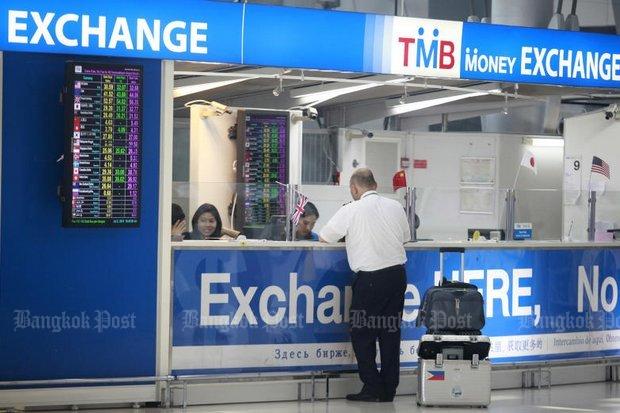Thailand: Baht’s sharp rise on BoT radar
The Bank of Thailand has acknowledged the baht’s rapid climb against the US dollar recently, a movement that it says warrants close monitoring.
“Even though the baht’s strengthening is in tandem with the movement of other currencies in the region, the baht in the recent period has gained in value rather fast,” said Mathee Supapongse, the deputy governor overseeing monetary stability at the central bank.
The abrupt appreciation of the baht reflects the market’s reaction to short-term volatility, Mr Mathee said.
“As a result, the Bank of Thailand will closely monitor the situation in the foreign exchange market,” he said.
The baht has gained about 7% year-to-date against the US dollar, trailing only South Korea’s won, which is up 8% in the period, according to data provided by the central bank.
Other currencies in the region have seen smaller gains against the greenback, including the Taiwanese dollar (6.3%), the Singapore dollar (6%), the Indian rupee (5.5%), the Japanese yen (5%), the Malaysian ringgit (4.7%), the Chinese yuan (2.8%) and the Indonesian rupiah (1.2%). The Philippine peso is down 2.2%.
Mr Mathee said foreign direct investment also contributed to the firmer baht. “We’ve advised the private sector to consider hedging to manage risks associated with the currency’s movement and to cope with global financial market fluctuations that remain high,” he said.
The central bank has maintained its tapering measures for almost four months since April, cutting supply of short-dated bonds by 320 billion baht as it seeks to curb hot money.
Don Nakornthab, a senior director at the Bank of Thailand, said last week that the baht’s strength had not significantly blunted Thailand’s trade competitiveness and that exports remained on track to achieve the central bank’s full-year forecast of 5% growth.
Mr Don said the central bank had acted on the baht to some extent in a bid to keep the currency in line with regional peers.
Thailand’s outbound shipments in June surged 11.7% year-on-year. For January-June, exports were up 7.8% year-on-year.
A foreign exchange dealer said the stronger baht sprang from the dollar’s retreat over concerns about the US economy.
“Indicators out of the US show that the economy is weaker than what the market expected while political uncertainties have increased, causing a sell-off in the US dollar in the recent period,” said the dealer, who declined to be named.
Offshore inflows to Thailand’s bond and stock markets since mid-July also contributed to the stronger baht, the dealer said.
The dealer put the baht’s near-term ceiling at 33.30 to the dollar through August. The baht on Tuesday traded at 33.42, compared with 33.46 on Monday.
In a report, Tisco Securities said: “In our view, the current account (CA) risk is now skewed towards the downside, as we believe imports will outpace market expectations in the second half when private investment starts to recover. This, in tandem with the baht’s strength, should cause CA surplus to ultimately shrink, reducing pressure on the baht going forward.”
The central bank has raised its forecast for the current account surplus to US$39.7 billion (1.33 trillion baht) this year from $36.9 billion previously after revising its export forecast to 5% growth from 2.2%.
The reversal of “Trump-flation” trades and the subsequent decline in discount-margin bond yields triggered a new stream of fund inflows into emerging-market assets, Tisco said.
Source: http://www.bangkokpost.com/business/finance/1293923/bahts-sharp-rise-on-bot-radar


 English
English




